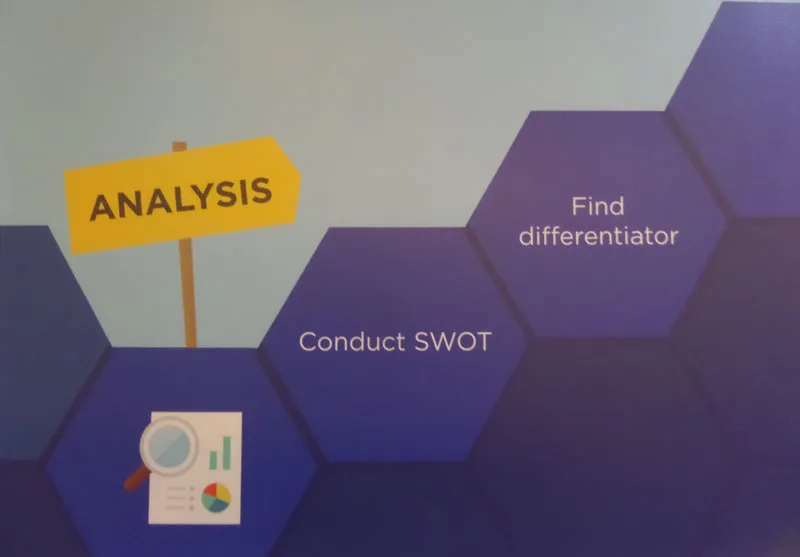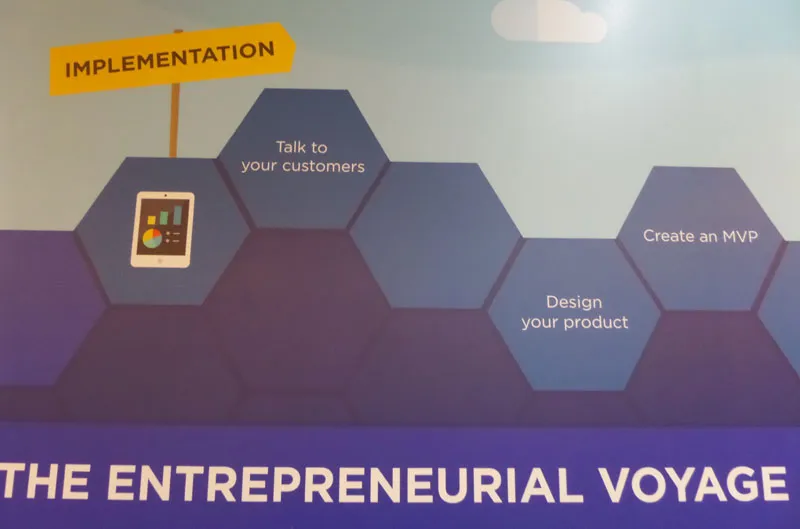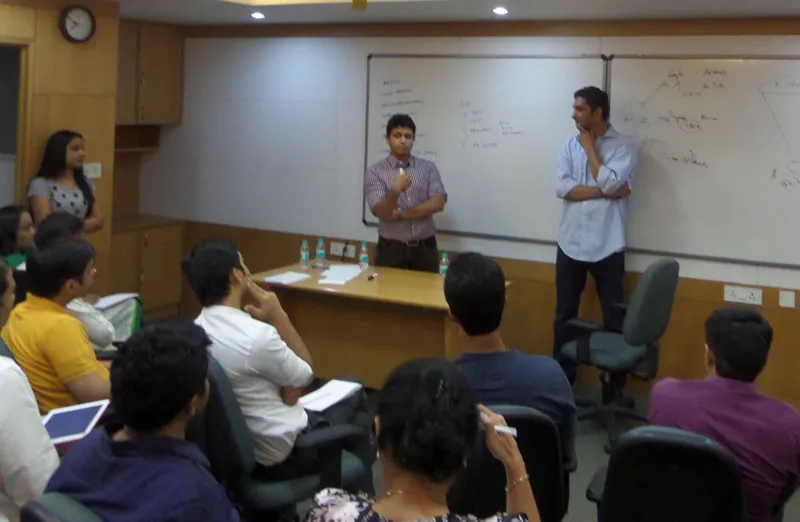TiE Bangalore Huddle: 25 questions for health retail startups from FlipKart and mDhil
Fifty founders, aspiring entrepreneurs, and business service providers gathered at the TiE Bangalore Huddle this week, to discuss emerging retail opportunities in health, fitness, and beauty.
The discussion was moderated by Satyam Bansal, Marketing Director at Flipkart, and Nandu Madhava, Founder and CEO of mDhil.

The audience included founders of Organic Xpress, QuinoaGuru, Lowkal Healthcare, MedTrips, Retale.in, Ishaya Enterprises, Gomalon, Sand for Soapaholics, Shape Up Fitness, Infallible Technologies, GalaxyKM, TriSys and Linqs.in. Categories represented ranged from agricultural firms and online yoga instructors to marketplaces and IoT solutions providers.
About 30 per cent of the US economy is in the health and fitness sector, said Nandu Madhava of mDhil. Yoga courses in the US are an $11 billion industry, and yoga accessories account for another $17 billion. India’s healthcare sector is expected to touch $158.2 billion by 2017, according to Equentis Capital. Diagnostics is a $3.5 billion market in India; preventive healthcare accounts for $250 million of the total healthcare market.
Seventy per cent of the healthcare infrastructure is confined to the top 20 cities of India, and e-health technology will play an important role in extending reach across India. India has a ‘twin burden’ of communicable diseases in lower income families, and non-communicable ailments in higher-income families, such as diabetes and obesity.
Changing demographics will also contribute to greater healthcare spending; this is likely to continue with the size of the elderly population set to reach 168 million by 2026. With India’s ‘youth dividend’ riding the mobile Internet and social media boom, the prospects look promising for retailers to get into the e-commerce sector in this space as well.

The facilitators and experienced entrepreneurs at the TiE Huddle offered a range of useful tips on market positioning, promotions and fundraising.
- Market positioning: Focus on ‘must-have’ products and services, and not just ‘nice-to-have’ ones. Compare global and regional health and fitness trends, e.g. consumption of quinoa is picking up in the West and now in India as well.
- Digital promotions: Digital marketing is often more effective than offline tactics like kiosks in malls or information counters in apartment complexes. Simple forms and landing pages along with ads on Google and Facebook are a cost-effective way to gauge customer interest. Focus on measurable marketing as well as brand-building for visibility, awareness, and credibility. Going ‘mobile first’ is an important strategy in India.
- Alliances: Reach out to affiliate sites like PriceCompare and BuyHatke and identify influencers like bloggers as well. Groupon may not be doing so well in some overseas markets but is doing well in India, along with related sites like DesiDime, GoPaisa, and PaidKart.
- Funding: Be clear when you want to raise venture money, taking into account external market conditions and willingness to invest. Remember that not all VCs are successful either in finding winners.

From the discussion at the TiE Huddle, here is my pick of 25 questions that aspiring startups should consider before entering this space. (Also see my Question Bank for Mobile Startups from the earlier TiE Mobile Product Showcase.)
- What is it about this sector that attracts you and what are you good at?
- How are health and non-health skill sets complemented in your founding team?
- If you are new in this space, what are you going to do to get mentors and contacts?
- What are the inter-state and international regulations affecting your business?
- What are the potential risks associated with consumption of your wellness products and how are you addressing them?
- How much customer education is needed to get people to understand what you are selling?
- What are the main data points for market sizes and trends in your sector?
- What are the buying habits of your customers, vis a vis men v/s women; elders v/s youth?
- What are the scale dimensions for your business – stores, national presence, global reach?
- Are you mainly trying to get customers into your store or products out of your store?
- Are the products you are selling likely to be popular for a long term, or are you riding a big fad?
- What is your omni-channel approach to marketing? How are you tackling B2C and B2B?
- What is your strategy for growth hacking?
- How well do you know the influencers, content creators, and curators in this field?
- What is your cost of customer acquisition in different cities and demographic groups?
- You have got your first set of customers. How do you ensure stickiness?
- What experiments have you conducted so far to understand your customers?
- Who are your key ecosystem partners?
- What deals are you capable of striking with ecosystem partners?
- At what stage are you starting to use offline and online analytics, and how?
- How are you reaching users through mobile?
- How does your UX compare to the best of breed, or to what customers are currently used to?
- What kinds of offers can you make available with features like group buying and couponing?
- How suitable is your business model for venture funding?
- At what stage will you need external funding? How well do you understand the VCs in this business?

The event was packed with insights and had its share of humorous interactions and questions as well: What is the difference between wellness and health? Are Indian millets better than quinoa? How can a startup compete against FlipKart? How long will it take for a truly global wellness brand to come out of India?
TiE has other retail interest groups spanning food, beverages, fashion, lifestyle and sports, and the Retailers Association of India also provides an industry platform. These are useful forums for networking between entrepreneurs, but ultimately the heavy lifting has to be done by founders themselves. “Welcome to the hustle!” concluded Nandu Madhava of mDhil.







